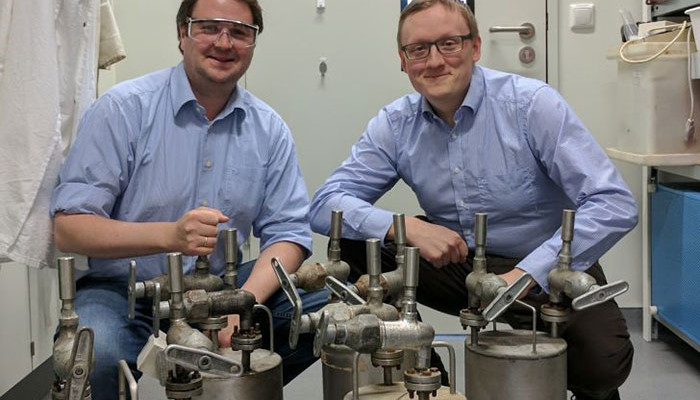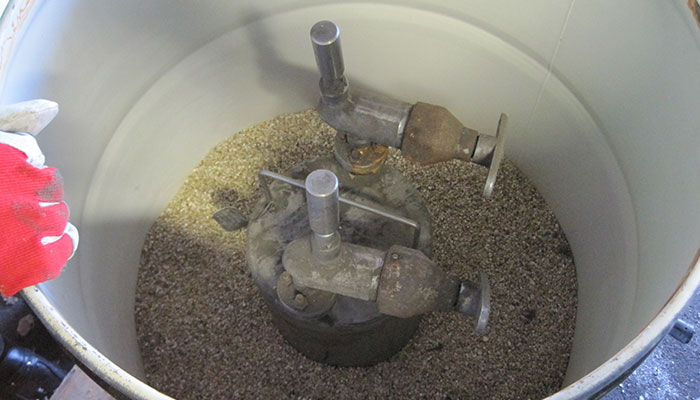Left in customs for 20 years, rubidium finds permanent storage site with the help of Aalto University
The deciding factor in the search for a permanent storage site came from the universities and their research collaboration.

The 50-kilogram batch of metal that is classified as a dangerous substance was left with Oulu Customs in 1997. It was then stored there for 20 years, as arranging a disposal site in Finland proved too difficult. In March 2017, the batch of rubidium was finally transported to the University of Marburg in Germany with the help of Aalto University.
The rubidium, which came from a former Soviet Union area, was originally headed to Germany. As neither the sender nor German recipient could be found, the batch was returned back to Finland, where the transportation company left the substance with Finnish Customs. The substance was then securely stored in metal containers that were placed inside wooden boxes. It is not dangerous to store rubidium, as it is non-poisonous and non-radioactive.
However, Finland did not have the special expertise required for disposing the substance. Like other alkali metals, rubidium is very reactive and can for example create hydrogen when exposed to water. Its safe handling requires special expertise, and transportation regulations demand risk management.

Photo: Finnish Customs
In addition, trying to find a use for a 50-kilogram batch of rubidium proved to be very difficult. The substance is used in extremely precise atomic clocks, for example, but only in very small quantities. No wide-ranging industrial use for rubidium exists. Small amounts of rubidium can also be found in nature, for example in seawater.
An exceptional project
The deciding factor in the search for a permanent storage site for the substance came from the universities and their research collaboration. By the end of 2016, Finnish Customs and Aalto University had secured a permanent storage site for the rubidium at the University of Marburg in Germany. The University of Marburg's department of inorganic chemistry will utilise the substance in its research activities.
‘It’s a good thing that Finnish Customs contacted Aalto University, as we have wide-ranging international cooperation networks. Transporting the batch of rubidium to Marburg has been an exceptionally interesting project,’ notes Assistant Professor of Inorganic Materials Chemistry Antti Karttunen. Karttunen has previously collaborated with the University of Marburg on rubidium.


